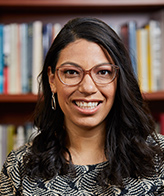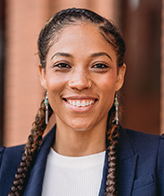Equity Development Institute 2020
May 1, 2020 – 12:30-4:30pm
A day dedicated to equity focused professional development as a way to live out our institutional commitment to our Core Themes. Our campus is closed to students during this time to ensure full participation from our staff, faculty, and administrative leadership community.
12:30 – 1 pm: Opening Remarks and Video
Join online for the opening remarks, and stay on for the opening presentation.
1 – 2 pm: Opening Presentation with Center for Urban Education (same link as above)
Introduction to Equity and Equity Mindedness: Webinar facilitated in real-time by Esmeralda Hernandez-Hamed
This 1-hour webinar will explore important terminology that practitioners should know to engage in discussions of racial-equity at Highline College within the context of COVID-19 and beyond. The webinar will provide definitions of terms like equity, equity-mindedness, deficit-mindedness, inquiry, —and more—developed by the Center for Urban Education (CUE). This webinar will also explore the use of institutional data as a starting point for racial equity discussions and goal setting using data from Highline College.
2:15 – 4:15 pm: Breakout Sessions (in different Zoom rooms)
Workshop: The Equity-Minded Practitioner: Using Data and Inquiry in the Pursuit of Racial Equity
Workshop facilitated in real-time by Esmeralda A. Hernandez-Hamed (Center for Urban Education)
Primarily intended for staff, managers, and supervisors, this session will explore how any area of campus can contribute to racial equity at Highline College. Participants will engage in activities that will help identify the parts of their practice where data can shed light on the state of racial equity in their area (e.g. counseling, financial aid, tutoring services etc.). The session will also cover observations as an inquiry activity that can help practitioners create spaces on campus with equity in mind.
Workshop: Equity-Mindedness in the Classroom: A Focus on the Syllabus as an Artifact of Racial Equity
Workshop facilitated in real-time by Marissiko M. Wheaton and Jordan Greer (Center for Urban Education)
Primarily intended for instructors, this session will explore racial equity in the classroom with a focus on the syllabus. The syllabus is a tool that communicates implicit and explicit messages to racially minoritized students. This session will explore how college classrooms are racialized spaces and how equity-minded practices in the syllabus can help mitigate racial equity gaps in course success. Participants will engage in activities and discussion about what language in the syllabus communicates to racially minoritized students. It may be helpful for instructors who attend this session to have a copy of one of their syllabi available in order to engage with the activities.
Peer Facilitated Discussion: Access – Our Community Responsibility
A peer facilitated discussion with campus faculty and staff
Join your colleagues in exploring approaches to providing equitable access for students with disabilities. In this conversation we will explore common biases and perceptions around disability and higher education. Together we will dive into these concepts and share strategies to promote equity and inclusion for all students. This conversation will be framed by these articles:
Participants are encouraged, but required, to read the articles in order before the workshop.
Peer Facilitated Discussion: Reclaiming Community Connections
A peer facilitated discussion with campus faculty and staff
Need a space to build community in response to covid 19 with self and students? How do we center when times are stressful and we don’t always have the answers? Come to our session to have an open space dialogue to share best practice, what you’re experiencing, and what others are doing to navigate unprecedented times.
Watch & Discuss: Employing Equity-Minded & Culturally-Affirming Teaching Practices in Virtual Learning Communities
Pre-recorded webinar featuring Dr. Luke Wood and Dr. Frank Harris, followed by a peer-led discussion
The unanticipated transition from face-to-face to online courses in response to COVID-19 presents a substantial challenge for many faculty, particularly those who have worked to create a teaching and learning environment that prioritizes equity and equity-mindedness. In this webinar hosted by the Center for Organizational Responsibility and Advancement (CORA) through San Diego State University, Drs. Frank Harris III and J. Luke Wood will present some salient trends and issues that complicate the experiences of diverse learners in online courses and propose equity-minded teaching and learning strategies for faculty teaching online courses.
Watch & Discuss: White People
Documentary by Jose Antonio Vargas, followed by a peer-led discussion
A study of the concept of white privilege and how it affects white people and other cultures, followed by a peer-led discussion.
Facilitators

Esmeralda A. Hernandez-Hamed
Esmeralda has worked at the Center for Urban Education as a project specialist for over three years. At CUE, she works with practitioners at community colleges and 4-year institutions across the U.S. to close racial equity gaps in areas like transfer, faculty hiring, and course completion. To this end, she facilitates discussions on race and equity-mindedness and leads practitioner inquiry into their everyday practices, policies, and structures. She holds a B.A. in Political Science and Minor in Education from the University of California—Irvine. She is also finishing her Ph.D. in Higher Education with a focus on Organizational Behavior and Management at the University of Michigan—Ann Arbor. Her research interests revolve around how higher education institutions change (or do not change) to align with equity and social justice. Her dissertation focuses on how practitioners act individually and collectively to institutionalize change that supports undocumented students on their campus.

Marissiko M. Wheaton
Marissiko is a scholar-practitioner committed to equity and social justice. She attended Santa Monica College and transferred to the University of California–Irvine, for her B.A. in Social Ecology. She then went on to obtain her M.A. in Higher Education/Student Personnel Administration from New York University and her Ph.D in Urban Education Policy from the University of Southern California (USC). Currently, Marissiko teaches in the Educational Counseling program at USC and also serves as a Postdoctoral Scholar at the Center for Urban Education. Prior to her doctoral studies, she worked in Student Affairs within a variety of functional areas, which include social justice education and training, student activities and leadership, and residence life.
Jordan Greer
Jordan has worked as a Project Specialist for the Center for Urban Education for over four years. As a Project Specialist, she works with higher education institutions’ college administrators, faculty and staff to translate policies, procedures and documents into digestible content. Her purpose is to conduct participatory action research to examine how these policies and procedures impact racially minoritized students. She received her master’s in Urban Education from Holy Names University and a B.A. in English and Secondary Education from Spelman College. She is currently enrolled in USC’s Rossier Higher Educational Leadership doctoral program. Before joining the Center for Urban Education, she worked at a non-profit in Northern California, where she engaged in relationship development of high school students and their guardians to increase access to opportunities in higher education outside of California. Her professional interests include engaging higher education practitioners in meaningful conversations about racial equity and developing real-world solutions to racial equity problems in education.
Agenda
| 12:30-1:00pm | Opening Ceremonies |
| 1:00-2:00pm | Center of Urban Education |
| 2:15-4:15pm | Breakouts |
| 4:15-4:30pm | Closing |
Objective:
- Identify at least one individual bias and how it relates to your work
- Identify one institutional bias
Outcomes:
- To increase equitable practice at Highline College
- Commune with colleagues around equity

